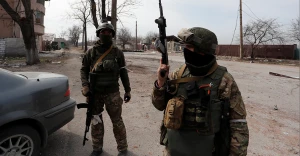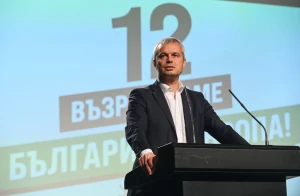
What to expect from Xi Jinping in Moscow
No, Putin's arrest warrant will not stop the emperor: Xi will be in Moscow for three days
Xi apparently knew about Putin's plans to launch a full-scale war and approved it. And he is disappointed with the results. Instead of a blow to the prestige of the United States and NATO and a split in Europe, the war led to the revitalization and consolidation of NATO, an increase in the military budgets of Japan, Korea, and Taiwan, and a rapprochement between India and the United States in the region.
But China still needs Russia desperately. Why? Because it is still its biggest ally.
-
Economically. Russia is a supplier of critical resources for China (energy, food, timber, coal, and metals).
-
Politically. China values Russia's influence in the Middle East, Caucasus, Central Asia, and Africa.
-
Militarily. Russia, as a military ally with nuclear capabilities, is seen as a serious balancing factor in case of escalation.
China is not interested in a weak Russia that descends into chaos. Russia must remain manageable and supply Beijing with what it needs. Accordingly, China does not need Russia's obvious defeat. To lose obviously is not so much to lose what it has captured as to cease to be a significant military power and lose control.
Therefore, Xi cannot wait for it to "somehow end." But it is also quite difficult to openly support Russia. Supplying weapons (in quantities that could change the course of the war) and openly giving money creates two big risks:
-
Pushing Europe "into the arms" of the United States. For now, European politicians are still living in a world of illusions that they may not be involved in the US-China rivalry. For Xi, it is important to restore the dynamics of economic relations with Europe amid problems in the Chinese economy, and not to get sanctions from the EU.
-
Creating another "bipartisan consensus" in the United States. If China becomes a party to the conflict, part of the Biden administration, as well as Republicans and Democrats who see China as the main threat, will become more determined.
“Open support for Russia may prove futile. Russia may still lose. And then China will get all the downsides of the situation without any upsides.”
There is also a third risk: open support for Russia may turn out to be futile. Russia may still lose. And then China will get all the downsides of the situation without any upsides. That is why Xi has become a great diplomat. The peace process can be a way to get what they want: to prevent a crushing defeat for Russia and to cement their credibility as a country that can solve global problems. At the very least, they should try.
And with that, Xi came to Moscow. There he will solve several problems:
-
Symbolic. For several generations now, Chinese leaders have made their first visit to Moscow. And this visit is the first international one since the official start of the Chinese president's third term.
-
Economic. To get more economic bonuses on favorable terms for China as a seller and a buyer, without promising anything substantial in return. As for arms supplies (the coveted "Chinese lend-lease"), China does not need to take Xi to Moscow for this, but rather the opposite.
-
Diplomatic. A personal search for an opportunity to end the war, which is not very profitable for China, on some compromise positions. Or at least to show European politicians and friends from the "third world" that "China is trying."
This visit is likely to end with Xi getting everything he wants on points 1 and 2. And nothing on the third. Although the whole process will be accompanied by massive statements about "intentions" and "commitment." But in fact, there will be nothing. Because:
-
Putin's trip to Crimea and Mariupol is precisely the preparation for Xi's visit, which should demonstrate that Putin will "never" give up as part of any peace initiatives. And he will definitely talk about how he "visited new regions that became part of Russia by the will of the locals."
-
We will talk to China in the context of our "peace plan": withdrawal of Russian troops, payment of compensation, and punishment of war criminals. We need to stall for time. And that's what we will continue to do.
Can the Chinese resort to irrational actions if Russia is obviously falling? Let me repeat. There is always such a risk. But if (when) Russia begins to fall rapidly, assistance with technology will not save it.
So the delay will continue. And we continue to watch.
Source
About the author. Yurii Bohdanov, publicist and strategic communications specialist in business, public administration and politics.
The editors do not always share the opinions expressed by the authors of the blogs.
- News












































